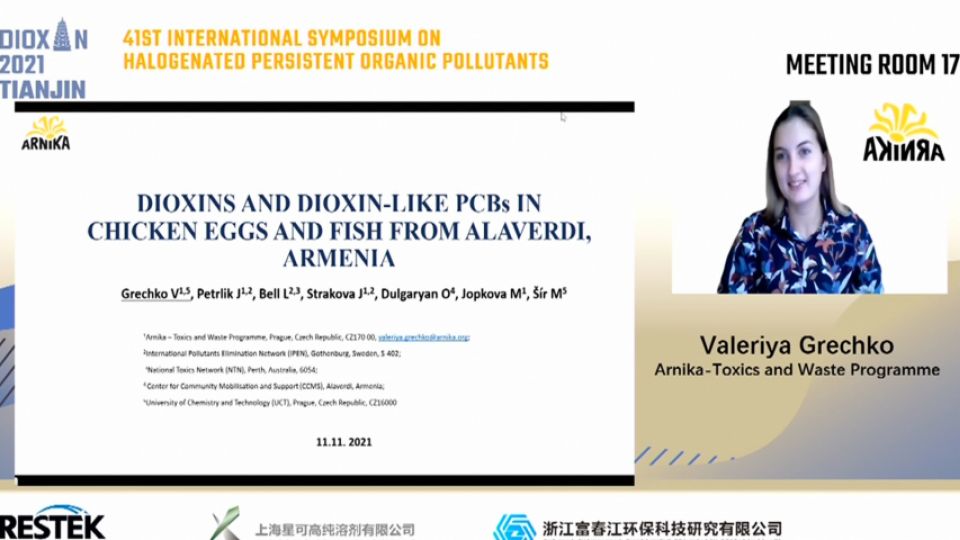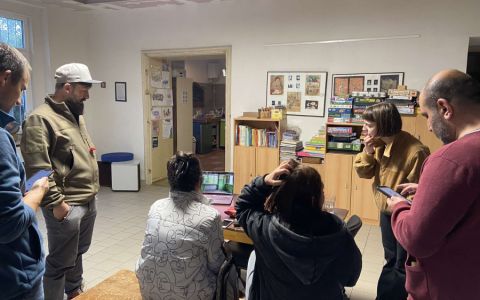The problem of dioxin contamination in Alaverdi Town, Lori Region, was presented on November 11th at the 41st International Symposium on Halogenated Persistent Organic Pollutants, which this year was held in a hybrid mode in Tianjin (China). The representative of the Czech environmental organization Arnika, Valeria Grechko, made a report on the research on the chemical pollution of territories under the influence of the mining and metallurgical industry, primarily the Alaverdi smelter. She focused on dioxin contamination, which researchers found in the eggs of free-range chickens between 2018 and 2020.
Valeria Grechko presented the results of laboratory research of the eggs selected in Alaverdi Town, Mets Ayrum Village of the expanded facilities of Akhtala Community, and in the supermarket in Yerevan. Analyses were carried out at the University of Chemistry and Technology (UCT) in Prague.
According to the findings, eggs from Alaverdi are contaminated with dioxins and other dioxin-like substances - polychlorinated biphenyls (PCDD/DFPHD) (1).
On average, when consuming even 1/3 of eggs per day, the level of the permissible daily standard for dioxins with food, based on 70 kg of the weight of an adult man, is exceeded by 260%, and in terms of 35 kg of the weight of a 10-year-old child - by 520%.
For the sample of eggs from Alaverdi with the highest level of dioxins, the excess is 457% for an adult man and 915% for a 10-year-old child.
In eggs from the village of Metz Ayrum and from a supermarket in Yerevan, the level of dioxins reached 23% and 3% of the norm for an adult, and 46% and 6% of the norm for a 10-year-old child, respectively.
An obvious source of dioxin contamination is the Alaverdi smelter since the level of dioxins in eggs decreases as they are further from the plant. Despite the fact that the enterprise has been closed since 2018, persistent organic substances are still present in the environment in 2020.
This article was prepared by the informational NGO EcoLur: https://www.ecolur.org/en/news/mining/13586/
(1) Note from EcoLur: Dioxins and other polychlorinated biphenyls are highly toxic. They are able to accumulate in living organisms during movement along the food chain. The half-life of PCBs in the human body is from several months to 15 years.







